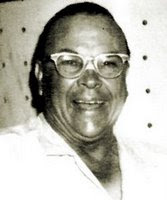
Numbers refer to original article's references
1. Perispinal etanercept produces rapid improvement in primary progressive aphasia: Identification of a novel, rapidly reversible TNF-mediated pathophysiologic mechanism. Abstract 421, presented July 30, 2008 at ICAD 2008, Chicago, Illinois
2. Perispinal etanercept produces rapid improvement in primary progressive aphasia: Identification of a novel, rapidly reversible TNF-mediated pathophysiologic mechanism, Neurology and Neurosurgery Clinical Cases, Medscape J Med. 2008; 10(6): 135.
3. Tobinick, E.L. and H. Gross, Rapid improvement in verbal fluency and aphasia following perispinal etanercept in Alzheimer's disease. BMC Neurol, 2008. 8(1): p. 27.
4. Tobinick, E.L. and H. Gross, Rapid cognitive improvement in Alzheimer's disease following perispinal etanercept administration. J Neuroinflammation, 2008.
5: p. 2.5. Tobinick, E., Perispinal etanercept for treatment of Alzheimer's disease. Curr Alzheimer Res, 2007. 4(5): p. 550-2.
6. Edward Tobinick MD is medical director of the Institute for Neurological Research(INR®), a private medical group, inc., in Los Angeles, California.
http://www.emediawire.com/releases/2008/8/prweb1175274.htm






































































No comments:
Post a Comment